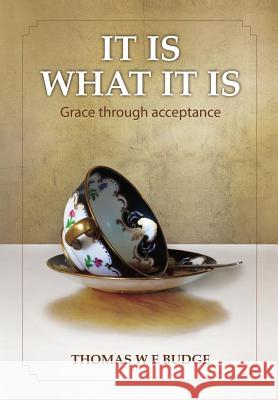It Is What It Is: Grace through acceptance » książka
It Is What It Is: Grace through acceptance
ISBN-13: 9780620555012 / Angielski / Miękka / 2013 / 290 str.
Thomas's book is autobiographical. It reads like a novel. As one of an initial group of white English-speaking conscientious objectors to refuse military training under South Africa's former regime, he was held in military custody in the Detention Barracks in Voortrekkerhoogte, Pretoria shortly after matriculating in the early 1970's. Of the 512 days of his incarceration, most of them were spent in solitary confinement and as much as a year in total isolation with a concurrent period spent in the notoriously awful dark-cells, a punishment that broke the spirit of many a young man. Whilst detention was an obviously difficult period for Thomas, it was extra tough because, as a gay man, he had to hide his sexual orientation from his family and friends out of fear. He had to live a double life: on one hand being the faithful child adhering to the strict dogma of the Jehovah's Witnesses, the religion under which he was raised; and simultaneously suppressing his sexual identity which he couldn't eradicate from his being. Deeply conflicted and misunderstood, soon, matters had to come to a head and he was excommunicated from the Witness faith because he chose to be himself. Excommunication (called disfellowshipping) is the Witnesses harshest form of punishment. Any disfellowshipped person is shunned - literally. No Witness is allowed to associate with a disfellowshipped person - not even eating a meal with him or her. And so, having been freed from apartheid policies, Thomas found himself punished yet again. This time having to face the loss of his family and community support - a sentence that lasted to the present, some thirty-five years on. At the time of his disfellowshipping, his father said: 'Today is the day my son died.' It took a few decades for him to find his way again, and only after he was introduced to his spiritual teacher Ram Dass who gave him a different and more positive perspective on life. Thomas is a motivational councillor who has worked with many thousands of people, many from the influential ranks of Johannesburg's rich and famous. Their stories, melded with his own, is a recipe for the creation of some really useful life-skills. His book is uplifting. It has a refreshingly different perspective on life. Thomas says in his introduction: 'Part of my story is about injustice, the ways in which the state, society, and creed systems often suppress the life of individuals like you and me. But, through and out of this, I also speak of the release and deeper transformation that comes from wise and courageous choices.'











